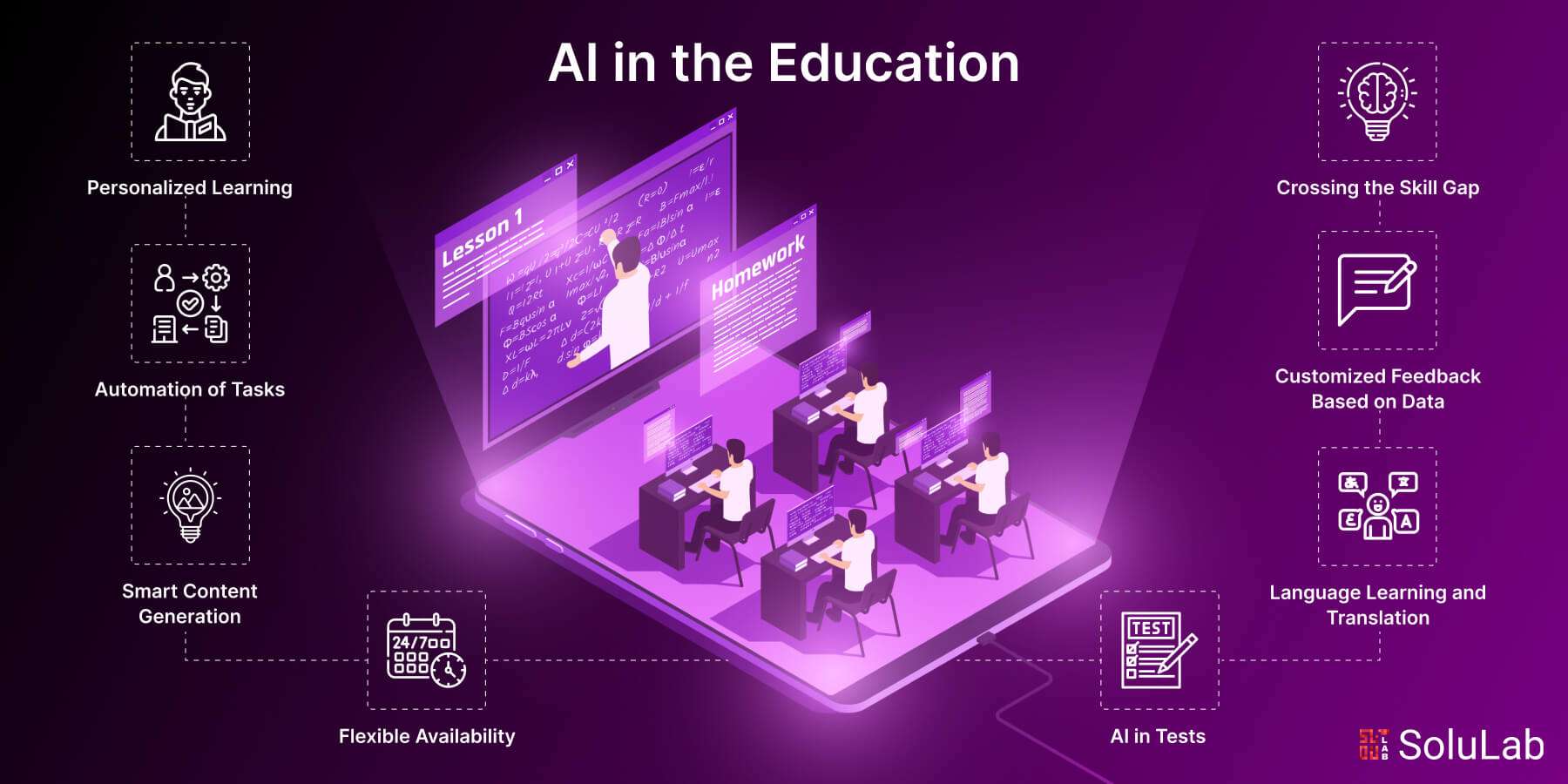This week’s presentation sheds light on “Two Sigma Problem” introduced by Benjamin Bloom in 1984 highlighting the benefits of personalized learning. The findings of Bloom’s research highlighted that student who received individualized tutoring performed better than those in traditional classrooms and displayed significant improvement in academic success. The research emphasizes on tailoring instruction to each student’s unique needs by working within their Zone of Proximal Development. The major challenge is implementation of such personalized learning on a large-scale basis. However, today’s AI advancements help make personalized learning widely accessible.
As discussed in the article What is artificial intelligence (AI)?,AI, initially focused on machine learning, evolved over the past 70 years to include deep learning and generative AI to replicate human cognitive skills. Machine learning helps to make data-based predictions whereas deep learning uses neural networks to process complex information. Generative AI, latest advancement in this field, can create original content such as text, images and videos using large language models revolutionizing industries, including education.
As an educator I can resort to generative AI in my teaching practices like when creating lesson plans, generating tailored resources for diverse learning needs and even drafting feedback for students. There are AI powered tools that help improve student’s writing skills by offering real-time suggestions. I have used AI in my everyday life for time management, writing assistance, generating meal plans and even for costume pairing ideas.

One of the benefits of AI in education as discussed in the article Advantages and Disadvantages of AI in Education is that it addresses the Two Sigma Problem by providing individualized tutoring and adaptive learning experiences thus enabling students to progress at their own pace.AI systems can identify a student’s weaknesses and provide targeted exercises to improve those skills. By reducing the administrative workloads for educators, AI helps them to free up time for meaningful student interactions.The drawbacks of AI that must be considered is, it diminishes human connections and role of teacher as a mentor. As all schools or students don’t have access to the necessary technology, equity issues may arise. Data privacy concerns also arise as AI systems often require extensive data collection.
Moving down the lane, AI is all ready to transform future education by enabling even more personalized learning experiences. Future classrooms will have AI tools that support teachers in tracking each student’s real time progress and providing instant feedback. AI based concepts like augmented reality (AR) and virtual reality (VR) helps in making complex concepts more tangible and interactive. AI will essentially have an all-round influence on various aspects of our lives from healthcare and transportation to entertainment and daily decision-making. Besides navigating its growth responsibly, it’s also essential to address the challenges like ethical use, data security and equitable access.
To summarize, AI has immense potential to solve the Two Sigma Problem and enhance personalized learning. We must look forward to leveraging the strengths of AI simultaneously addressing its challenges and hence create a future where education is more effective, inclusive and equitable.
Hi Aysha, thanks for sharing. Your conclusion sums it up quite nicely. It was impressive reading about your personal experience with AI, especially regarding the use of meal planning. But as with everything in an imperfect world, there are both positive and negative effects of using these tools. Therefore, I am in total agreement that AI can enhance personalized learning as well as it certainly affords teachers more meaningful interaction with students. However, the regressive dependency on these tools and privacy concerns cannot be ignored.